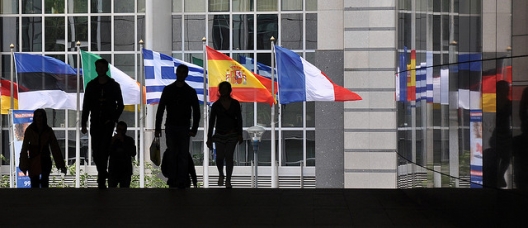 Kidnapping Europeans for ransom has become a global business for Al Qaeda, bankrolling its operations across the globe.
Kidnapping Europeans for ransom has become a global business for Al Qaeda, bankrolling its operations across the globe.
While European governments deny paying ransoms, an investigation by The New York Times found that Al Qaeda and its direct affiliates have taken in at least $125 million in revenue from kidnappings since 2008, of which $66 million was paid just last year.
In news releases and statements, the United States Treasury Department has cited ransom amounts that, taken together, put the total at around $165 million over the same period.
These payments were made almost exclusively by European governments, who funneled the money through a network of proxies, sometimes masking it as development aid, according to interviews conducted for this article with former hostages, negotiators, diplomats and government officials in 10 countries in Europe, Africa and the Middle East. The inner workings of the kidnapping business were also revealed in thousands of pages of internal Qaeda documents found by this reporter while on assignment for The Associated Press in northern Mali last year.
In its early years, Al Qaeda received most of its money from deep-pocketed donors, but counterterrorism officials now believe the group finances the bulk of its recruitment, training and arms purchases from ransoms paid to free Europeans.
Put more bluntly, Europe has become an inadvertent underwriter of Al Qaeda.
The foreign ministries of Austria, France, Germany, Italy and Switzerland denied in emails or telephone interviews that they had paid the terrorists. “The French authorities have repeatedly stated that France does not pay ransoms,” said Vincent Floreani, deputy director of communication for France’s Ministry of Foreign Affairs.
Several senior diplomats involved in past negotiations have described the decision to pay ransom for their countries’ citizens as an agonizing calculation: Accede to the terrorists’ demand, or allow innocent people to be killed, often in a gruesome, public way?
Yet the fact that Europe and its intermediaries continue to pay has set off a vicious cycle.
“Kidnapping for ransom has become today’s most significant source of terrorist financing,” said David S. Cohen, the Treasury Department’s under secretary for terrorism and financial intelligence, in a 2012 speech. “Each transaction encourages another transaction.”
And business is booming: While in 2003 the kidnappers received around $200,000 per hostage, now they are netting up to $10 million, money that the second in command of Al Qaeda’s central leadership recently described as accounting for as much as half of his operating revenue.
“Kidnapping hostages is an easy spoil,” wrote Nasser al-Wuhayshi, the leader of Al Qaeda in the Arabian Peninsula, “which I may describe as a profitable trade and a precious treasure.”
The stream of income generated is so significant that internal documents show that as long as five years ago, Al Qaeda’s central command in Pakistan was overseeing negotiations for hostages grabbed as far afield as Africa. Moreover, the accounts of survivors held thousands of miles apart show that the three main affiliates of the terrorist group — Al Qaeda in the Islamic Maghreb, in northern Africa; Al Qaeda in the Arabian Peninsula, in Yemen; and the Shabab, in Somalia — are coordinating their efforts and abiding by a common kidnapping protocol. . . .
Negotiators believe that the Qaeda branches have now determined which governments pay.
Of the 53 hostages known to have been taken by Qaeda’s official branches in the past five years, a third were French. And small nations like Austria, Spain and Switzerland, which do not have large expatriate communities in the countries where the kidnappings occur, account for over 20 percent of the victims.
By contrast, only three Americans are known to have been kidnapped by Al Qaeda or its direct affiliates, representing just 5 percent of the total.
“For me, it’s obvious that Al Qaeda is targeting them by nationality,” said Jean-Paul Rouiller, the director of the Geneva Center for Training and Analysis of Terrorism, who helped set up Switzerland’s counterterrorism program. “Hostages are an investment, and you are not going to invest unless you are pretty sure of a payout.”
Mr. Cohen, the United States under secretary for terrorism and financial intelligence, said information gathered by the Treasury Department suggested that Al Qaeda may no longer want to kidnap Americans, a tectonic shift from a decade ago.
“We know that hostage takers looking for ransoms distinguish between those governments that pay ransoms and those that do not, and make a point of not taking hostages from those countries that do not pay,” he said in a 2012 speech to the Chatham House think tank in London. “And recent kidnapping-for-ransom trends appear to indicate that hostage takers prefer not to take U.S. or U.K. hostages, almost certainly because they understand that they will not receive ransoms.”
Image: European flags in Brussels (photo: PicturesFromWords)
